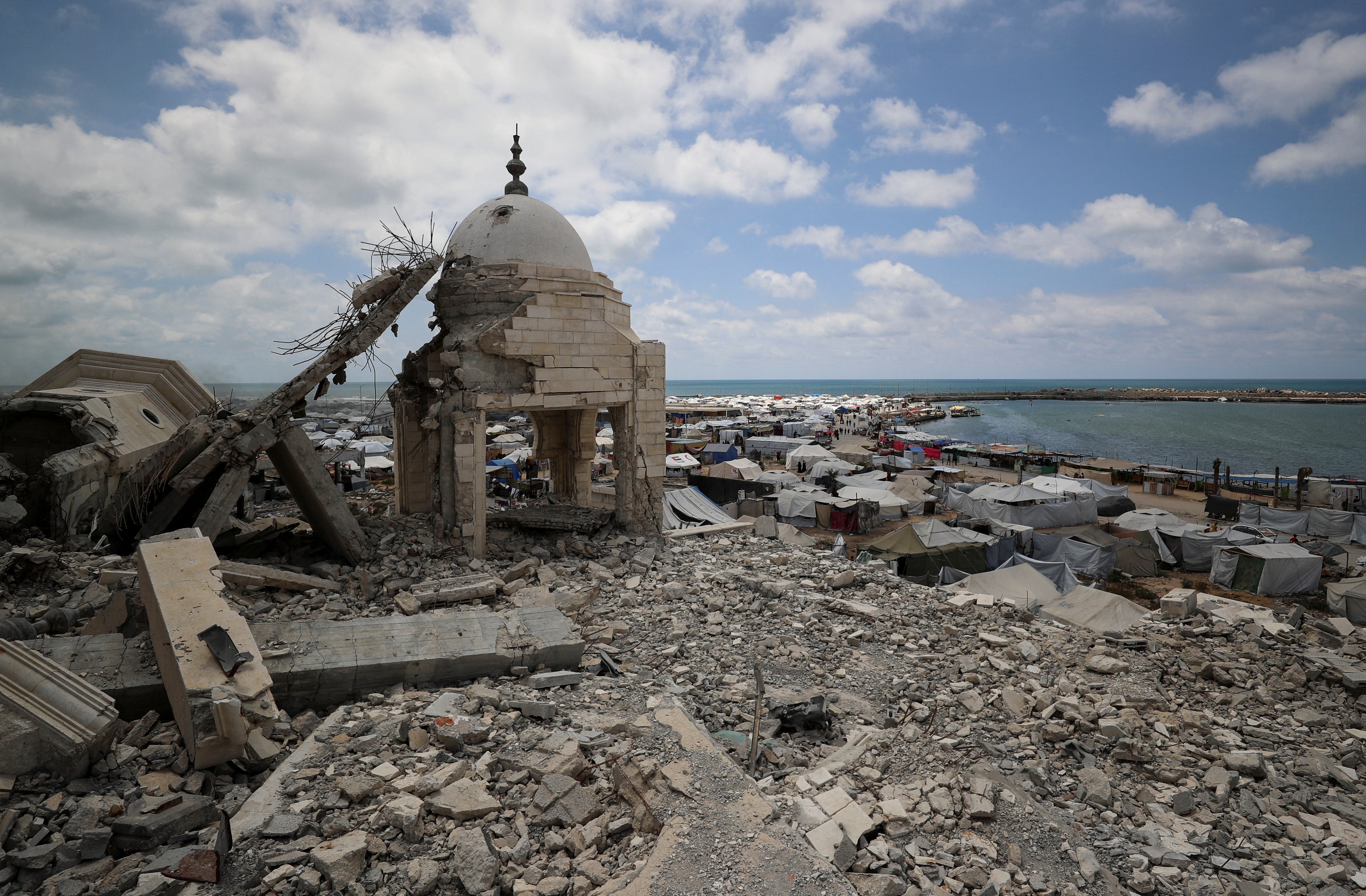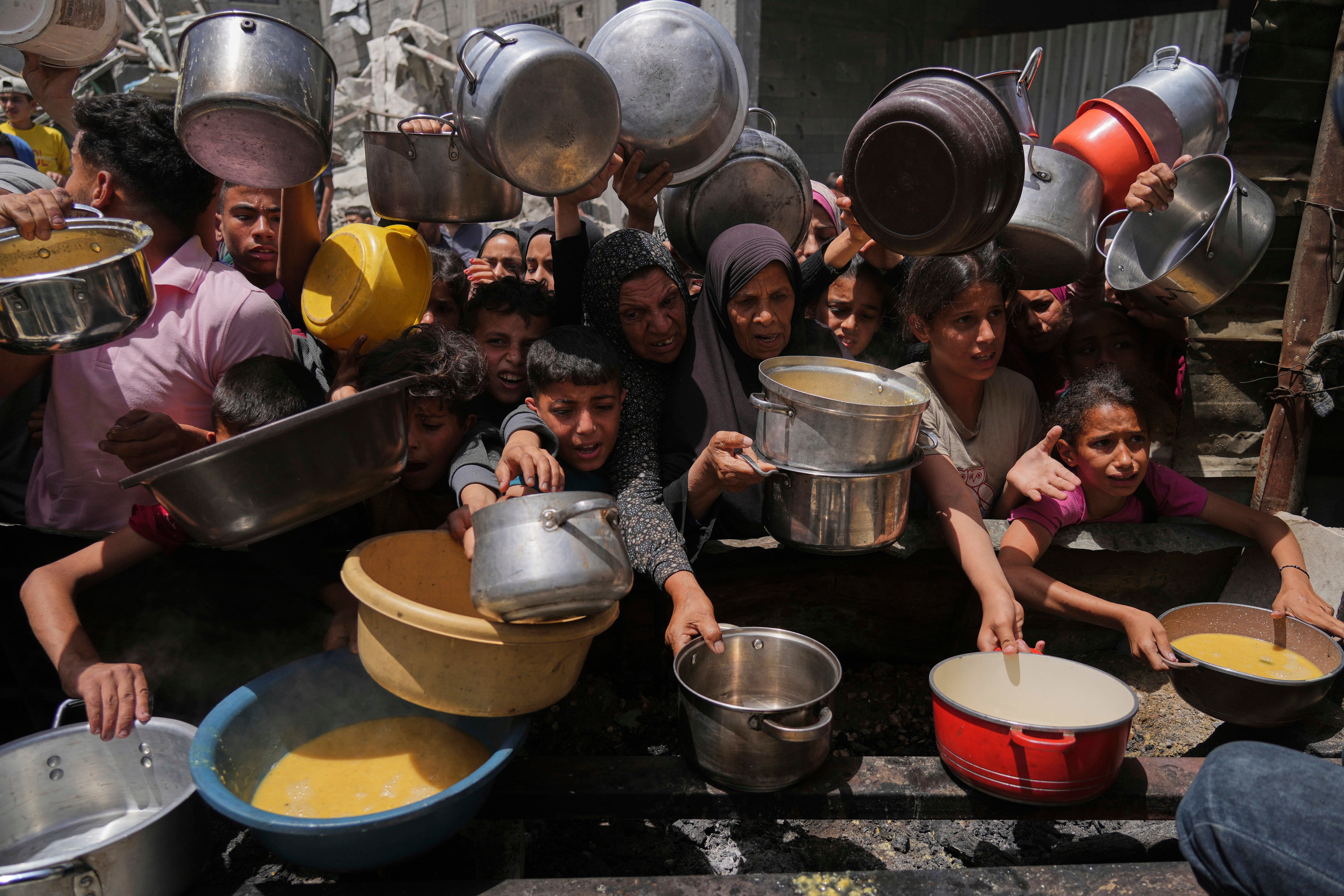ARTICLE AD BOX
Israeli tanks and drones attacked the last partially functioning hospital in northern Gaza in overnight bombardment of the besieged Palestinian territory where alarm was mounting over starvation deaths as little humanitarian aid trickled in.
Israeli forces struck Al Awda Hospital on Thursday, killing several people and igniting a huge fire that wrecking the facility, local health officials said.
A video taken by a healthcare worker showed the hospital’s walls blown away and a huge fire erupting from the wreckage with thick black smoke billowing in the sky.
Israeli forces killed over 100 people across Gaza and wounded some 250 in the 24 hours until Thursday morning, the local health ministry said.
The attack on Al Awda targeted the main hospital building, water tanks and fuel reserves, causing the huge blaze, Dr Rafat Al-Majdalawi, director general of the Al Awda Health and Community Association, said, according to The National.
It was the last partially functioning hospital for thousands of people in northern Gaza, ActionAid said, adding that “starving and injured people, as well as pregnant women in need of maternity care, will have nowhere left to turn” if it was forced out of service.
“In the last 24 hours, staff report that tank fire has hit the hospital’s surgery department, water tanks, fuel tanks and outpatient buildings,” ActionAid said.
“A warehouse housing medical supplies was also hit, sparking a huge fire which has yet to be contained, due to firefighters reportedly being prevented from reaching the site. The situation is incredibly dangerous, with no one able to enter or leave the facility, and around 160 medical staff and patients trapped inside, trying to continue saving lives under the nonstop sound of quadcopters firing overhead.”

The Israeli military said its forces were operating "adjacent" to Al Awda Hospital and had allowed emergency workers to come try and put out a fire. "The circumstances of the fire are still under review," they added.
The attacks came as limited shipments of food aid, deemed not enough for the starving population, entered Gaza after a three-day delay. The shipments went in after Israel eased its nearly three-month blockade of the territory this week.
"The shipments from yesterday are limited in quantity and nowhere near sufficient to meet the scale and scope of Gaza's 2.1 million people," UN spokesman Stephane Dujarric said.
The UN said that food aid had been collected from only about 90 trucks out of the nearly 200 that entered Gaza after Israel relaxed the blockade.
Israel completely blocked the entry of food, fuel and medicine into Gaza on 2 March, and resumed its military offensive two weeks later after collapsing a two-month ceasefire with Hamas.
At least 29 children and elderly people have died from "starvation-related" causes in Gaza in recent days, Palestinian authority health minister Majed Abu Ramadan, who is based in the occupied West Bank, told reporters.
The Integrated Food Security Phase Classification, backed by the UN, has said half a million people are at risk of facing starvation in the coming months.

Israel also launched a wave of strikes on multiple areas in southern Lebanon on Thursday, some far from the border. The National News Agency of Lebanon described the strikes as "the most violent in some areas" since a ceasefire agreement ended Israel’s latest war with Hezbollah last November.
The Israeli attacks came two days before municipal elections were set to take place in southern Lebanon. Prime minister Nawaf Salam said the attacks "will not deter the state from its commitment to the electoral process" and called for more international pressure to make Israel stop bombing his country.
The Israeli army issued a warning ahead of one strike that destroyed a building in the town of Toul, which it described as "facilities belonging to the terrorist Hezbollah”.
A video of the strike's aftermath showed fire and a cloud of smoke rising over an area packed with apartment buildings. Strikes in other areas were carried out without warning.
Residents of northern Israel also reported hearing loud explosions from across the border.









 English (US) ·
English (US) ·